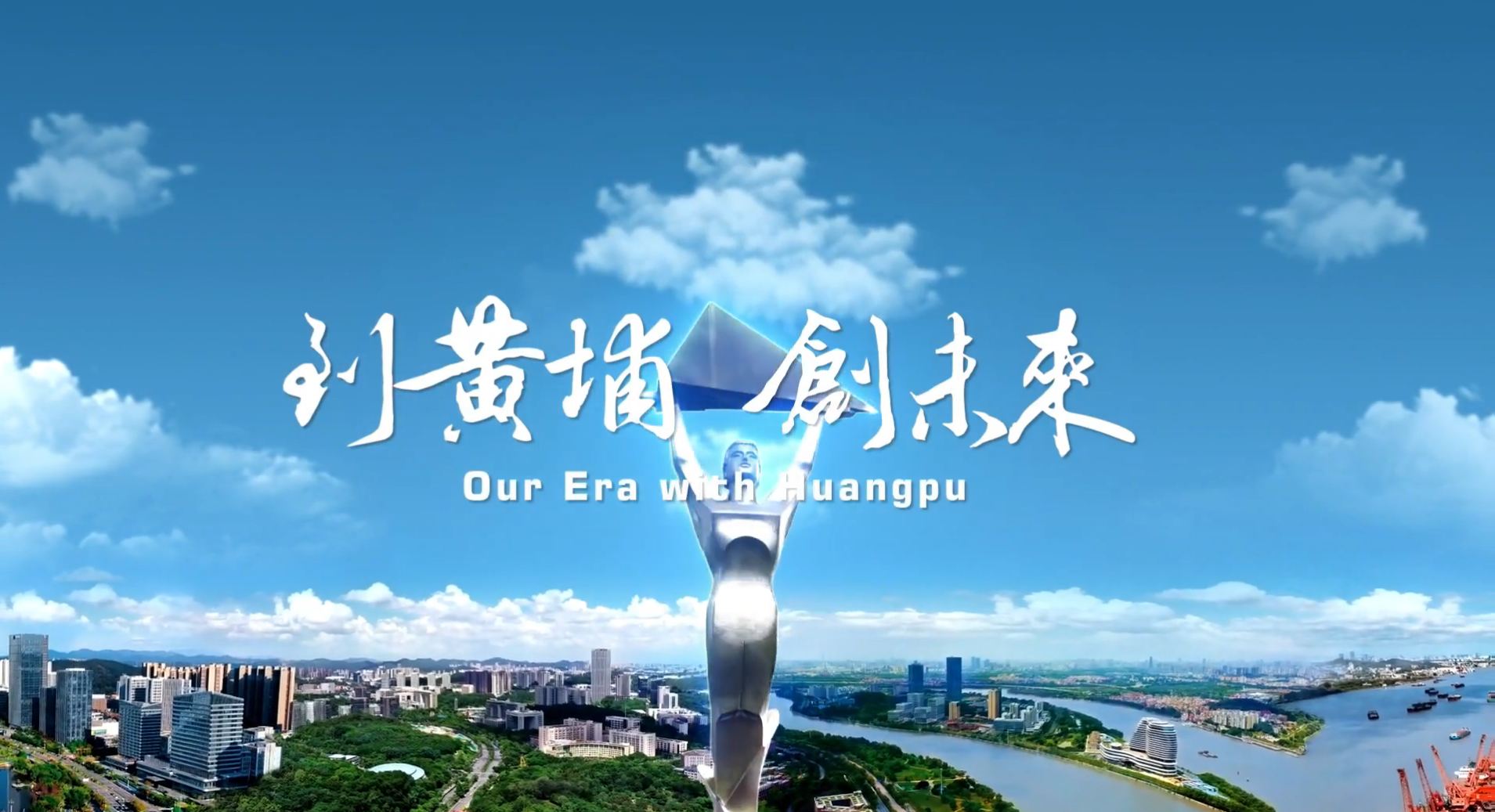World’s largest robot company Fanuc establishes manufacturing base in Huangpu
Updated : 2019-11-19On Nov 18, 2019, Guangzhou Fanuc Robot Company Limited was opened at Science Park of Guangzhou Development Zone, Huangpu District. The new company will serve as the South China headquarters of the world’s largest robot manufacturer, Fanuc. Covering a land area of about 40,000 square meters, the base will house the Japan-based innovator’s research and development, manufacturing, exhibition, and training facilities.
More than 10 robot companies, including Fanuc, GSK, Risong Technology, KDT Machinery, and MINO have established a presence along Ruixiang Road of the Science Park. A high-end smart manufacturing industry belt is in place to transform the Science Park into a smart manufacturing center in China with global influence.

On Nov 18, 2019, Guangzhou Fanuc Robot Company Limited is opened at Science Park of Guangzhou Development Zone, Huangpu District.[Photo by Li Jianfeng]
World-leading robots manufactured in Guangzhou to enter world market
Fanuc Robot, first established in Japan in 1956, has leading capacity in CNC system research, development, design, manufacturing, and sales. Up to now the company has sold over 600,000 sets installed across the world, setting a world record on single brand industrial robot installation. In 2018, Fanuc recorded a business revenue over 600 billion yen ($ 5.52 billion).
Fanuc is also the largest manufacturer of CNC devices in the world, and a leading manufacturer of robotic and smart devices. It has the highest market share on robots globally, winning it a reputation as one of the world’s “big four robot families”. Fanuc can make over 260 types of robots, and its industrial robots have loading capacities ranging from 0.5 kg to 2300 kg. They are widely used in all production activities such as assembly, handling, welding, casting, spraying, and stacking to meet diversified needs of users. Fanuc’s Japanese headquarters, situated at the foot of Fujiyama in a land area of 1800 mu, are nicknamed the “yellow giant at the foot of Fujiyama” with a 150-hectare modernized green plant set in deep woods.
It is been learnt that Guangzhou Fanuc will consolidate resources of the mother company in all of South China to support the regional headquarters’ dedication to robot sales, demonstration, training, tech support, processing, and warehousing. The base will capitalize on resources in robot, smart machinery, the Internet of Things and artificial intelligence to construct an eco-system centered around smart manufacturing, which will radiate throughout the region.
On the same day as its business launch the company released new robot products and automatic application solutions. A “tailored production remote ordering” system, for example, enables customers to place orders remotely via WeChat, monitor in real-time the flexible production at Fanuc’s Shanghai factory, and receive updates on progress. This system has helped realize end-to-end smart manufacturing from remote ordering to final delivery.
Multiple SCARA robots were released at the event. Among them, the SR-3iA has a maximum loading capacity of 3kg and a maximum activity radius of 400mm; SR-6iA has a maximum loading capacity of 6kg and a maximum activity radius of 650mm. Both robots can be widely applied in high-speed and high-efficiency transfer of small products in 3C industries.

On Nov 18, 2019, Guangzhou Fanuc Robot Company Limited is opened at Science Park of Guangzhou Development Zone, Huangpu District.[Photo by Li Jianfeng]
Global leaders clustered in “City of Robots”
Robots are a main application of AI. Since 2013, China has topped the world in industrial robot applications. Against this backdrop, the Guangzhou Development Zone is dedicated to becoming a “City of Robots”, and is introducing domestic and international robot companies to the park to form an industry cluster.
In addition to Fanuc, the zone has pursued in-depth cooperation with large central enterprises to host the China (Guangzhou) Intelligent Equipment Research Institute with a total investment of RMB 1 billion, as well as the National Robot Inspection and Evaluation Center of Guangzhou. It established the first China-Israel joint robot research institute to bring in robot companies and technologies from Israel. What’s more, the Guangzhou Development Zone is dedicated to facilitating development of potential domestic companies, such as the robot and system integration technology base of Risong Technology, and the robot and smart manufacturing industrial base of Greatoo.
MINO has launched China’s first non-standard smart manufacturing flexible assembly line, and the first vehicle production line big data smart analysis and diagnose platform, which has been certified by 15 car-markers from home and abroad. Guangzhou STS Robot has the largest share in the domestic robot body market, with annual capacity of about 500 sets. Yueyan also ranks first among domestic brands in terms of market share in automobile trunk and steel cleaning robots.
As more and more robot companies chose the Guangzhou Robot Industry Park, the park will benefit from the industrial cluster and attract more up-stream and down-stream businesses. The planning on high-end smart manufacturing is clearer than ever.
The Guangzhou Development Zone, a major manufacturing zone in the city, hosts three pillar industries of new-generation IT, fine chemicals, and key vehicle components which are valued at more than 100 billion yuan. It enjoys exceptional manufacturing strength as the home of many leading domestic and overseas manufacturers. Now it is pushing for industrial upgrading and transitioning, and shifting to smart industries with the approach “robots for men”. It means greater market opportunities for robot business such as Fanuc. The new base is said to supply robots for many car and component companies and high-end manufacturers. It is a partner of Honda, a world top 50 company with a base only 15 minutes drive awaye.
Guangzhou Development Zone set on an AI-empowered industrial trajectory
In recent years, the Guangzhou Development Zone has invested heavily in AI industries. Currently, the zone has over 200 AI companies with annual output of 20 billion yuan, about 50% of the overall output of the industry city-wide. These companies concentrate on smart complete equipment, industrial robots, intelligent hardware and software and intelligent vehicles. Utilizing its solid industrial base, the zone has established complete industrial chains in three sub-sectors, including robot main bodies and AI smart processors and sensors as well as applications.
Unprecedented policy support has been offered by the zone to facilitate development of the AI industry. A new major project with total fixed asset investment reaching RMB 1 billion will award RMB 100 million to companies upon certification; a key AI project platform constructed and operated in the zone will be awarded up to 10 million yuan in line with its investment scale upon certification; and a project winning a national-level award such as a State Science and Technology Award for AI will be awarded up to 2 million rmb. Incubators and start-up spaces will be entitled to a one-off award of 100,000 yuan for the first time any AI start-up reaches annual business revenue of 20 million rmb.
The Guangzhou Development Zone will prioritize development of AI Smart Parks, supported by four main industrial clusters in a design of “One City Three Districts”. One City here means the Science Park which focuses on smart software, cloud computing, UAV, and cognitive intelligence; “northern district” means New Guangzhou Knowledge Town for high-end smart manufacturing, “center district” means the Yunpu Industrial Zone for CNC and industrial robot manufacturing; and “southern district” means Huangpu District for its machine valley park for smart machinery manufacturing.
For the purpose of constructing a smart manufacturing center in China with global influence, the Guangzhou Development Zone has sent targeted invitations to businesses in AI and high-end manufacturing, including world top 500 and global industrial leaders. On new-generation IT technology, LG has invested 46 billion yuan in the zone on the world’s largest 8.5-generation OLED production line with the most advanced production facilities. Investments in medicine include efforts on anti-cancer drugs by LONZA and AKEsobio. The first industry 4.0 smart manufacturing project by APTAR in Asia has recently been made ready for production, side-by-side with a recent launch for construction of a power distribution plant by Siemens.
- Investment and Entrepreneurship
- Investment Advantages
- Investment Guide
- Policies
- Key Projects
- Major Industries
- Industrial Parks
- Investment Opportunities
- Technological Innovation
- IPR
- Enterprises
- Talents
All rights reserved. Presented by China Daily
粤ICP备16087157号-1










